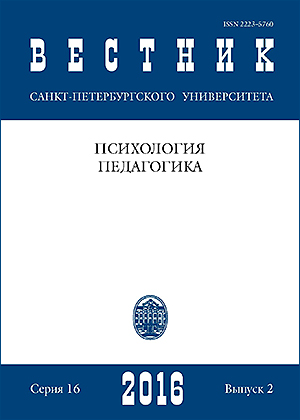Когнитивный резерв как психологический и психофизиологический ресурс в период старения
Аннотация
Когнитивное старение, как и биологическое, — гетерогенный и сугубо индивидуальный процесс, в результате которого даже у людей, физиологически имеющих повреждения мозга, ассоциируемые с болезнью Альцгеймера (выявленные при посмертных исследованиях), могут не проявляться нарушения в работе когнитивных функций. Статья представляет собой обзор современных исследований феномена когнитивного резерва. Представлены основные компоненты когнитивного резерва, предложенные Я. Штерном, а также факторы и возможные эмпирические подходы к изучению когнитивного резерва. Среди факторов внимание уделяется образованию, билингвизму, эмоциональным процессам и работе норадреналина. Рассматриваются психологические и психофизиологические методы изучения когнитивного резерва, в частности модель изучения когнитивного резерва М. Нуцци (M. Nucci), и возможности исследования когнитивного резерва с помощью ПЭТ. В заключение приводятся возможности применения данного концепта на российской выборке и возможная специфика подобных исследований.
Ключевые слова:
когнитивный резерв, старение, факторы старения, когнитивные функции, эмоциональные процессы
Скачивания
Библиографические ссылки
References
Опубликован
Как цитировать
Выпуск
Раздел
Лицензия
Статьи журнала «Вестник Санкт-Петербургского университета. Психология» находятся в открытом доступе и распространяются в соответствии с условиями Лицензионного Договора с Санкт-Петербургским государственным университетом, который бесплатно предоставляет авторам неограниченное распространение и самостоятельное архивирование.




